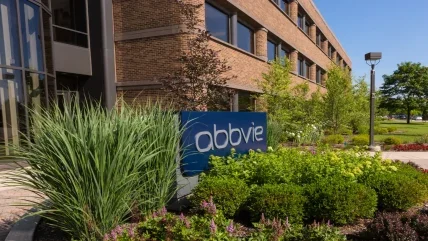
AbbVie announced that the Phase 3 TEMPO-2 trial evaluating investigational tavapadon as a flexible-dose monotherapy in early Parkinson’s disease has met its primary endpoint.
The primary endpoint of the trial is defined as a significant improvement in the Movement Disorder Society – Unified Parkinson’s Disease Rating Scale (MDS-UPDRS) Parts II and III combined score at week 26. The drug candidate showed a reduction of -10.3, compared to -1.2 for placebo.
According to AbbVie, tavapadon is the first and only D1/D5 partial agonist under investigation as a once-daily treatment for Parkinson’s disease.
AbbVie added the asset to its portfolio through its $8.7bn acquisition of Cerevel Therapeutics, which was completed in August.
The TEMPO-2 trial tested the effectiveness, safety, and tolerability of flexible-dose tavapadon as a monotherapy for early Parkinson’s disease in adults.
The trial also met the key secondary endpoint, with statistically significant and clinically meaningful improvement in daily motor function in the tavapadon group compared to placebo at week 26.
AbbVie eye care, speciality, immunology, neuroscience development senior vice president Primal Kaur said: “The positive results across all three Phase 3 TEMPO trials underscore the potential of tavapadon as a first-in-class D1/D5 partial agonist for the treatment of Parkinson’s disease.
“With these data in hand, we look forward to working with regulatory agencies to assess next steps, bringing us one step closer to providing tavapadon for those living with this chronic, debilitating disease.”
Full results from the TEMPO-2 trial will be presented at a future medical meeting. AbbVie plans to submit the new drug application (NDA) to the US Food and Drug Administration (FDA) in 2025.
The TEMPO clinical development programme assessed the efficacy, safety, and tolerability of tavapadon in a broad Parkinson’s disease population.
This included two Phase 3 monotherapy trials, TEMPO-1 and TEMPO-2, and one adjunctive Phase 3 trial, TEMPO-3.
AbbVie is also conducting a fourth open-label extension (OLE) trial, TEMPO-4, to evaluate the long-term safety and tolerability of the therapy.
In a similar development, the drugmaker announced new results from two ongoing clinical trials of epcoritamab, a CD3xCD20 bispecific T-cell-engaging antibody.
Epcoritamab is administered subcutaneously, in adult patients with diffuse large B-cell lymphoma (DLBCL).
The Phase 1b/2 EPCORE NHL-2 trial showed 100% overall response and 87% complete response in untreated high-risk DLBCL patients.
The Phase 2 EPCORE NHL-1 trial showed a 52% three-year response in relapsed large B-cell lymphoma (LBCL) patients.






